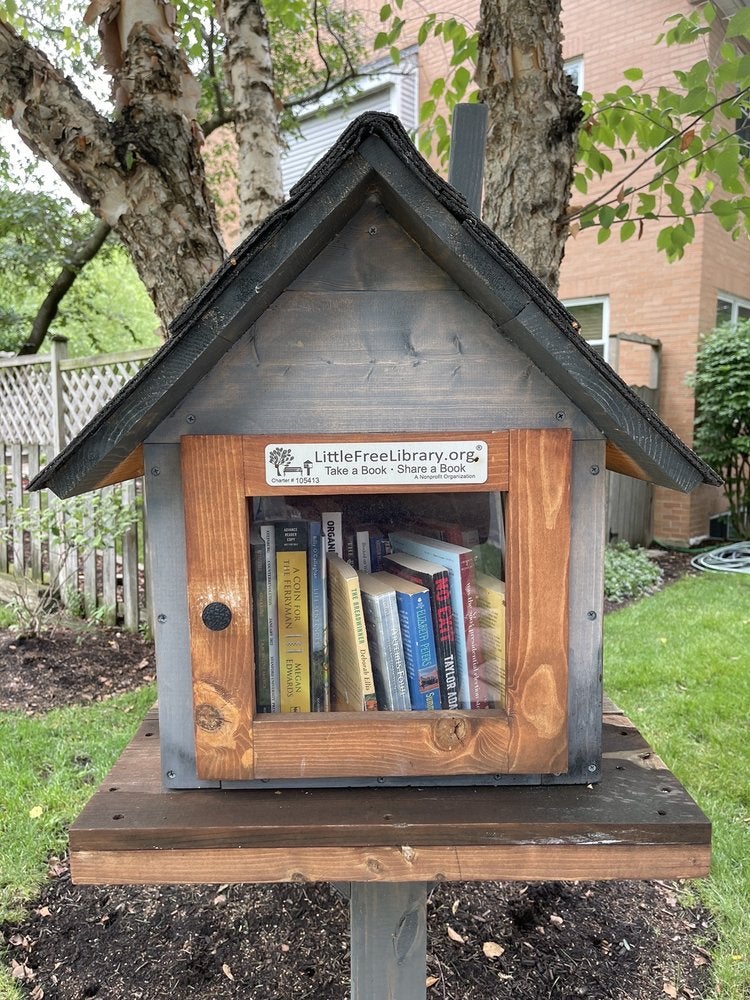Collaging/Scrapbooking
If you’re an artistic person or are looking for a new creative outlet, you can use old books for collaging or other multimedia art projects. The same way collaging asks you to cut excerpts from magazines, you can do with different books.
If you like bullet journaling or scrapbooking, you can use cuttings in place of stickers for labeling things like the month, or use clipped excerpts to communicate a mood or feeling instead of writing a quote out by hand. Passages selected to be cut and pasted in your scrapbooks and bullet journals don’t have to be specific; they can be purely aesthetic, especially if you’re going for a dark academia or historic, romantic vibe in your spread. You can make any book page look vintage by dying it in brewed tea to brown the edges and add texture to the pages.
Christmas Ornaments
Another creative way to repurpose old books for art is by clipping out lines or words you like, and putting them into clear ornaments to create bookish Christmas ornaments. They make for adorable decorations and also personalized gifts! You can use fun scissors to cut pages in a pattern, or if you’re blessed with good coordination and nimble fingers, you can fold cuttings into shapes like stars or hearts. You can also use whole pages to create folded ornaments, like an accordion fold rosette or teardrop-shaped ornaments.
Use Old Pages to Create New Found Art Poems
Another cool way to repurpose old books is to turn them into a poetry project. Blackout poetry is a form of found art poetry that you create by taking a page from a book (or magazine or newspaper) and using a marker or tape to “black out” words and chunks of text, intentionally leaving only some words or phrases visible to create a poem out of what’s left.
If using a marker isn’t your thing, you can also clip words and phrases and rearrange them into a new poem, gluing them onto a new piece of paper or cardstock.
If you’re a writer who needs a creative boost, using an old book to create some found poetry might be just the spark you need to think outside of the box and get new ideas flowing.
You can also host a poetry night with friends, and trade pages and materials to create found poems with, then take turns reciting your favorites. If you create one that you really love, you can frame it and keep it as a memento, or gift it to someone who would love it.

_png_1663190247129_0_png_1672694445191_0?alt=media&token=e26d6763-fbde-42cc-8e82-832ffbd193de?auto=webp&format=webp&width=800&quality=85)

